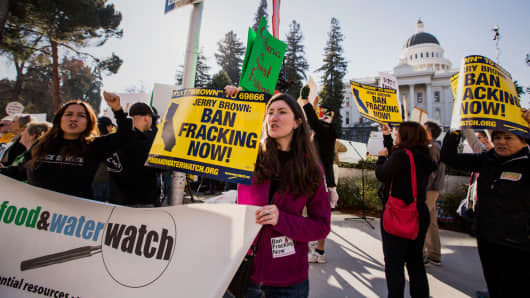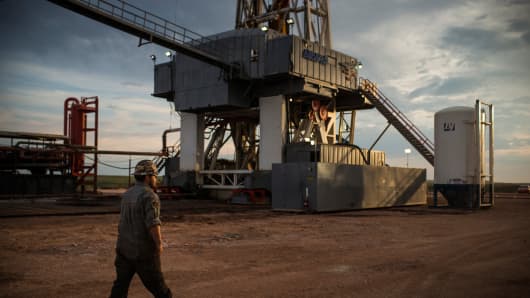California fracking opponents aiming to stop development of massive state oil reserves are focusing their drive this year around the state's record-breaking drought, arguing oil production would suck sorely needed water from farms and homes.
California Rep. Marc Levine told Reuters last week that he will co-author an upcoming bill that would place a moratorium on hydraulic fracturing in the state, and said he will use the drought, which could be the state's worst ever, to bolster his position.
"The drought is a game changer on fracking," Levine said. "We have to decide what our most precious commodity is—water or oil? This is the year to make the case that it's water."
A moratorium bill failed last year on a vote of 37 to 24, although another bill requiring greater disclosure on fracking, including water use, passed.
State Sen. Holly Mitchell, Levine's co-sponsor on the bill, is not planning to focus on the drought, but environmentalists already are capitalizing on it, picketing Gov. Jerry Brown at events including his announcement of the drought.
"Fracking uses water we just can't spare," said Dan Jacobson, legislative director for environmental lobby group Environment California.
Fracking has created an energy boom in the U.S. and has the potential to drastically increase oil production in California Monterey Shale deposit, which federal officials have estimated holds up to 15 billion gallons of oil, more than most estimates for Alaska's Arctic National Wildlife Refuge and twice the reserves of North Dakota's Bakken shale oil deposit.






